ABOUT KIDNEY CARE PROGRAM
Kidney Care Program is an exciting initiative launched by the Ministry of Health to provide kidney health screening in a community based setting. From November 2022, we will launch multiple community and digital campaigns to spread awareness about kidney disease and conduct kidney disease screenings in the heart of Medina and Macca cities.
The aim of the program is to spread awareness and reduce the burden of kidney disease in our community, and to assist individuals that are at a higher risk of developing kidney disease. We will use technology enabled tools and predictive analytics to screen and identify individuals that are at risk of developing or worsening kidney disease.
(Insert Picture)
- Kidneys are a pair of bean shaped organs that are located just below your rib cage, one on each side of your spine
- They are relatively small organs; healthy kidneys are about the size of your fist
- Healthy kidneys remove wastes and excess fluid from your body
- Kidneys manage fluid in the body, control blood pressure and balance acidity and mineral composition (they help keep chemicals such as sodium, potassium, and calcium balanced in the body)
- Kidneys also help control blood pressure and stimulate bone marrow to make red blood cells
Kidneys process 100% of the body’s blood supply about every 5 minutes
Click here to Learn more about your Kidneys Health
(Redirects to Understanding your Kidneys Health?)
Call us at 800-Kidney to learn more about the program and where you can get screened today!
*Call center is available Sunday - Thursday from 8 am - 4 pm
The Kidney Care Program is a community-based initiative that educates the population about their kidneys, risk factors for kidney disease and steps to take to keep kidneys healthy.
Screening events are happening in your neighborhood
(Click here to find an event near you)
Attend a Screening event near you Today!
Are you at risk of Kidney Disease?
- You could be if you have high blood pressure or diabetes
- You could be if you have someone in your family that had kidney failure
- You could be if you are 60 years old or older
- You could be if you are overweight or obese
- Cardiac disease
What you need to do if you are at risk of Kidney Disease?
- Eat Healthy
- Be Active
- Maintain a healthy Weight
- Keep Hydrated
- Reduce Salt Consumption
- Schedule a Kidney Test
- Moderate Protein Consumption
- Consult a nutritionist to create a kidney-healthy diet
It is important to get tested because early detection and treatment can slow down or prevent the progression of kidney disease
Call us at 800-Kidney to learn more about the program and where you can get screened today
*Call center is available Sunday - Thursday from 8 am - 4 pm
Kidney disease, also known as chronic kidney disease, is an under-recognized public health crisis.
- Kidney disease affects 1 in 20 adults in Saudi Arabia
- Kidney disease affects an estimated 37 million people in the U.S.
- Approximately 90% of those with kidney disease don't know they have it.
- Approximately 1 in 3 adults with diabetes and 1 in 5 adults with high blood pressure may have kidney disease
- And 2 of 5 adults with severe kidney disease don't know they have it.
- Kidney disease is a leading cause of death worldwide
- About 1 in 2 people with very low kidney function (not on dialysis) don't know they have kidney disease.
You are at an increased risk of chronic kidney disease if any of these apply to you:
- Do you have high blood pressure?
- Do you have diabetes?
- Do you have established heart problems (heart failure or past heart attack) and/or had a stroke?
- Do you have a family history of kidney failure?
- Are you obese (body mass index ≥ 30)?
- Are you a smoker?
- Are you 60 years or older?
- Have you had an acute kidney injury at any time in your life?
THINGS TO REMEMBER:
- You can lose a majority of your kidney function before getting any symptoms
- eGFR is the best measure of your kidney function and helps decide the stage of kidney disease
- Treatment during early stages can slow the progress of kidney disease and reduce the likelihood of further complications
Call us at 800-Kidney to learn more about the program and where you can get screened today
*Call center is available Sunday - Thursday from 8 am - 4 pm
Hyperlink Definitions Below
- Blood and urine tests show how well your kidneys are doing their job and how quickly body wastes are being removed
- Urine tests can also detect whether your kidneys are leaking abnormal amounts of protein, which is a sign of kidney damage
- Below is a short list of measurements and samples that could be taken to be measure your kidney function:
Participants over the age of 18 would provide the following measurements and samples:
- Height
- Weight
- Body Mass Index (BMI)
- Resting Blood Pressure (RBP)
- Random Blood Sugar (RBS)
- Urine ACR
- Blood Creatinine (eGFR)
Pediatric participants under the age of 18 would provide the following measurements and samples:
- Height
- Weight
- Body Mass Index (BMI)
- Random Blood Sugar (RBS)Resting Blood Pressure (RBP)
- Urine Analysis for RBC counts
- Urine ACR
- Blood Creatinine (eGFR)
*Participants under the age of 18 will be required to obtain a guardian consent along with a completed questionnaire before they get screened
(Click here to be redirected to the consent form and the questionnaire)
Call us at 800-Kidney to learn more about the program and where you can get screened today
*Call center is available Sunday - Thursday from 8 am - 4 pm
A Kidney Health Check Involves 3 Straightforward Tests:
- A Blood Pressure Test – Because high blood pressure and kidney disease are related
- A Blood Test – To see how well your kidneys are filtering your blood
- A Urine Test – To check for albumin (a type of protein) or blood in your urine
Understanding Kidney Health Checks:
Because there are often no symptoms of kidney disease, laboratory tests are critical.
- When you get screened, a trained technician will draw blood that will be tested for creatinine, which is a waste product.
- If kidney function is abnormal, creatinine levels will increase in the blood due to decreased excretion of creatinine in the urine.
- Your glomerular filtration rate (GFR) indicates the person’s stage of Chronic Kidney Disease. This will also be calculated.
- GFR factors in age, gender, creatinine level and ethnicity.
- Together, the results provide an evaluation of kidney function
Call us at 800-Kidney to learn more about the program and where you can get screened today
*Call center is available Sunday - Thursday from 8 am - 4 pm
- GFR is a measure of kidney function and can determine if you have kidney disease and what stage you're at.
- To find the GFR, healthcare professionals will test your blood for a waste product called creatinine.
- If GFR is over 90, the kidneys are healthy and functioning normally.
- A kidney score of 60-89 means the person should be monitored
- If GFR scores falls to less than 60 for a three-month period, that is an indicator of chronic kidney disease.
Call us at 800-Kidney to learn more about the program and where you can get screened today
*Call center is available Sunday - Thursday from 8 am - 4 pm
If you have diabetes or high blood pressure, it is wise to get a Kidney Health Check as soon as possible. Get your Kidney Health Check annually
If you have any other risk factors (for example, you’re a smoker or have a history of kidney disease in your family), it is wise to get a Kidney Health Check every year with a primary care physician and more frequent based on physician advise
If you do not have any risk factors for kidney disease, it is wise to get periodical Kidney Health Check every once and a while
Call us at 800-Kidney to learn more about the program and where you can get screened today
*Call center is available Sunday - Thursday from 8 am - 4 pm
- Register on Kidney.sa by clicking the “Screening Tool Questionnaire” button or call us at 800-Kidney.sa to schedule a screening appointment
- Show up to the Screening location at the scheduled date and time
- Ask for assistance from one of our Screening Professionals and fill your Kidney Care Screening Questionnaire if you haven’t already done so
- Check weight, Blood Pressure and provide samples during the visit
- We’ll contact you via SMS or by phone to share your results
- Review your Clinical Team Prepares Participant Scorecard (sent to you within 24-72 hours) and get in touch with our experts to understand next steps.
*** You can access your Participant Scorecard (Hyperlink to what is a scorecard. Details Below) at any time after your results are out via your account on Kidney.sa
Get in touch with our experts in person or by phone to understand more about next steps
Call us at 800-Kidney to learn more about the program and where you can get screened today
*Call center is available Sunday - Thursday from 8 am - 4 pm
Your Participant Scorecard provides you with an overview of the Screening Test Results which are required to check your Kidney’s Health
In brief, it is Medical Report that will highlight:
- Participant’s Information
- Lab Results
- Vital Signs
- Risk Factors that might show up from a screening
Once a participant registers for a screening appointment and gets screened, they can access their Medical Report by logging in with their registered account details
(Click here if you’d like to access your Patient Scorecard)
Image Here
(Should redirect to participant login section)
Call us at 800-Kidney to learn more about the program and where you can get screened today
*Call center is available Sunday - Thursday from 8 am - 4 pm
What is kidney disease and what is kidney failure?
- Kidney disease means your kidneys are damaged and can't filter blood the way they should
- Kidney disease is called “chronic” because kidney function slowly gets worse over time
- Kidney disease eventually leads to kidney failure, which is also called end-stage kidney disease if not treated at the right time
- Individuals with kidney failure end up needing dialysis treatment or even sometimes choose to undergo kidney transplant
- Having kidney failure means that most of your kidney functions do not exist and they do not operate well enough alone to keep you alive
- There is no cure for kidney failure, but it is possible to live a long life if one chooses the right treatment options and takes proper lifestyle choices
- Having kidney failure does not mean it is all over
- People with kidney failure can live active lives and continue to do the things they enjoy doing
Click here to see what tests you need to take today as part of your screening (redirects to Checking Kidney Functions)
Get your Kidney Health Check today!
(Click here to register and fill the Screening Tool to set a screening appointment)
Or click here to learn How early detection helps? (HyperLink)
Call us at 800-Kidney to learn more about the program and where you can get screened today
*Call center is available Sunday - Thursday from 8 am - 4 pm
- Once your kidney function is completely lost, the few healthy nephrons remaining in your kidneys will not be able to filter your blood and keep your body healthy
- Nevertheless, it is possible to prevent or at least slow down the progression of Kidney Disease through early diagnosis
- Given its nature, where no signs of symptoms usually appear, screening of Kidney Disease plays an important role in early detection
- Screening frequency for certain individuals should be annually if no irregularity is detected during an initial evaluation
- Screening and early detection of chronic kidney disease are believed to produce better health outcomes as both patients and caregivers can actively use tools and techniques to slow down the progression of end-stages and improve outcomes.
Get your Kidney Health Check today!
(Click here to register and fill the Screening Tool Questionnaire to set a screening appointment)
Call us at 800-Kidney to learn more about the program and where you can get screened today
*Call center is available Sunday - Thursday from 8 am - 4 pm
- Body Mass Index (BMI)
Is a measure of body fat based on height and weight of men and women?
- Resting Blood Pressure (RBP)
A normal blood pressure level is less than 120/80 mmHg.
Abnormal/High blood pressure could be one of the leading causes of kidney disease.
- Random Blood Sugar (RBS)
This test checks for abnormal levels of glucose/sugar in your blood.
A normal result depends on when you last ate.
Most of the time, the blood glucose level will be around 125 mg/dL (6.9 mmol/L) or lower.
One can test positive for diabetes if the level is too high and this is one of the leading causes of kidney failure.
- Urine ACR
Albumin-to-creatinine ratio
If your kidneys are not functioning well, protein ends up leaking into your urine. An ACR test detects this
protein and triggers it as an early sign of a damaged kidney.
This is usually the first method of preference to detect elevated protein. The recommended method to
evaluate albuminuria is to measure urinary ACR in a spot urine sample
- Blood Creatinine (eGFR)
Estimated Glomerular Filtration Rate: A test that measures your level of kidney function and determines your
stage of kidney disease. Your healthcare team can calculate it from the results of your blood creatinine test,
your age, body size, and gender. This measures how well kidneys filter wastes out of the blood.
Call us at 800-Kidney to learn more about the program and where you can get screened today
*Call center is available Sunday - Thursday from 8 am - 4 pm
LET US SERVE YOU BETTER
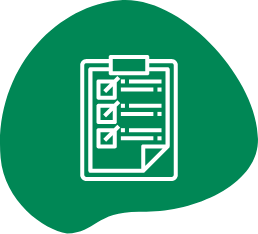
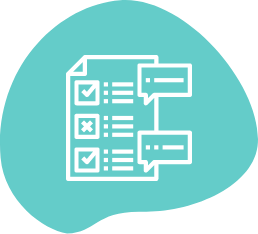
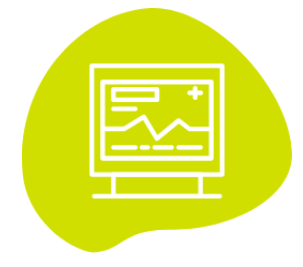
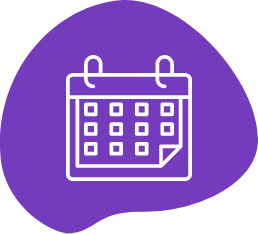
CKD PROGRAM STATISTICS
10100
# Of Participants Screened
Total Screened: 10100

